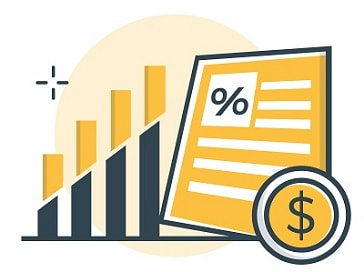Pathfinder Kiwisaver Review - is this the KiwiSaver scheme for you?
We review Pathfinder KiwiSaver, the KiwiSaver scheme offering ethical investments, charitable donations and active management
Updated 17 November 2023
Summary of Pathfinder
- Funds and Fees: Pathfinder offers three funds (Conservative, Balanced and Growth), with annual fees ranging between 0.84% p.a. and 1.29% p.a. of the total investment plus a $27 membership fee, in line with actively managed funds such as Milford KiwiSaver, Fisher Funds and Generate.
- Results: Pathfinder produced the second-highest Growth Fund returns for the three-years ended 31 March 2023 per Morningstar data, outperforming all but one KiwiSaver Growth fund. Additionally, the Pathfinder Conservative Fund was one of the top performing funds for the conservative category for the three years to 31 March 2023 and has previously been featured in the NZ Herald.
- Ethical investing: Pathfinder's ethical investing policy is at the heart of everything it does. It arguably applies the strictest test, excluding any company it considers to be 'unethical' or a poor investment opportunity. It also invests outside the sharemarket and has an equity stake in Sharesies. Alongside holdings in Microsoft and wind farm companies, Pathfinder's intention is to invest in companies that are undervalued, have growth potential and do not harm society.
- Charitable donations: Pathfinder has pledged to donate 20% of its management fees to New Zealand charities. A recent list of recipients can be found here.
- Assets: Funds invest in ethically-approved cash, bonds and listed and unlisted companies. The mix depends on the risk profile of the fund.
- Performance: 3-Year data to 31 March 2023 can be found here.
- Our view: Pathfinder does not take a passive approach to ethical investing. It's focus is one investing in only the most sustainable, non-harmful companies that it believes to be undervalued. Pathfinder has a raft of exclusions for its selection processes and uses a stringent environment, social and governance metric.
- Limitations: If you’re looking for funds investing in specific industries, such as oil and gas, agriculture or mining, Pathfinder is not for you. Pathfinder's active management means its fees are higher than ethical index-tracking schemes.
Our Review
In this guide, we outline what the Pathfinder KiwiSaver plan is, how it differs from standard KiwiSaver providers, as well as looking at whether it's safe to invest in given its recent appearance in 2019 as a KiwiSaver provider. We cover:
Please note: MoneyHub is not a Financial Adviser, and our guide to the Pathfinder KiwiSaver Plan has been published to explain the investment fundamentals and outline the pros and cons of the scheme. Nothing in this guide constitutes financial advice.
How does Pathfinder compare with other options?
Advertising Disclaimer: MoneyHub may earn a referral bonus for anyone that’s approved through some of the below links. Our research and findings are independent of any bank, credit card issuer, or product manufacturer/service provider, and have not been endorsed by any of these entities. Please see our Advertising Policy for more details about how we make money.
In this guide, we outline what the Pathfinder KiwiSaver plan is, how it differs from standard KiwiSaver providers, as well as looking at whether it's safe to invest in given its recent appearance in 2019 as a KiwiSaver provider. We cover:
- The Specs of Pathfinder
- The Funds
- What You Need to Know
- FAQs
- The Competition
- What the media says about Pathfinder
- 3 Must-Know Facts about Pathfinder
- Conclusion
Please note: MoneyHub is not a Financial Adviser, and our guide to the Pathfinder KiwiSaver Plan has been published to explain the investment fundamentals and outline the pros and cons of the scheme. Nothing in this guide constitutes financial advice.
How does Pathfinder compare with other options?
- Read our Favourite KiwiSaver Funds guide to find out more.
- Worried about not having enough money when you retire? Don't retire poor - read our Retirement in a Nutshell guide (warning: it's brutally honest)
Advertising Disclaimer: MoneyHub may earn a referral bonus for anyone that’s approved through some of the below links. Our research and findings are independent of any bank, credit card issuer, or product manufacturer/service provider, and have not been endorsed by any of these entities. Please see our Advertising Policy for more details about how we make money.
The specs of Pathfinder's three funds
Pathfinder offers three different funds, investing in local cash deposits and bonds, as well as New Zealand, Australian and overseas shares. Pathfinder's funds' offshore assets are 50% hedged to the NZ dollar. This means that if the NZ Dollar rises against any overseas currency, the value of the overseas investment is 50% diminished due to the hedging and therefore eliminating exchange rate movement as an investment risk. Hedging is standard practice by almost all KiwiSaver schemes and Pathfinder operates in line with its competitors.
The fees are as followed:
Investment Products include:
The fees are as followed:
- Annual fees:
- Pathfinder KiwiSaver Conservative Fund: Management fee of 0.84% p.a + $27 Pathfinder KiwiSaver plan membership fee per year.
- Pathfinder KiwiSaver Balanced Fund: Management fee of 1.14% p.a + $27 Pathfinder KiwiSaver plan membership fee per year.
- Pathfinder KiwiSaver Growth Fund: Management fee of 1.29% p.a + $27 Pathfinder KiwiSaver plan membership fee per year.
- Transfer in and exit fees: There are no exit fees, but your existing KiwiSaver scheme provider may charge an exit fee - you'll need to contact them to find out what that is. Our switching KiwiSaver guide has more details.
- Minimum Initial Investment: $1 for all funds.
Investment Products include:
- Cash and cash equivalents (i.e. bank deposits in New Zealand banks)
- NZ Fixed Interest (i.e. investments in New Zealand or and/or local government bonds or company debt)
- International Fixed Interest (i.e. investments in overseas government bonds or company debt)
- Australian Equities (i.e. shares in ethically-approved New Zealand and Australian companies listed on the sharemarket)
- International Equities (i.e. shares in ethically-approved oversras-listed companies)
Pathfinder Funds in a Nutshell
4Pathfinder offers three funds - Conservative, Balanced and Growth. This is a standard setup for almost all KiwiSaver schemes. When it comes to risk, generally the rule is that the higher the percentage invested in shares (rather than cash deposits and fixed interest), the riskier the investment. This is because shares fluctuate in value, whereas cash deposits don't and your investment is near-guaranteed for anything classes as cash or fixed-income. It's important to note that all Pathfinder funds are actively managed, with individual shares analysed, bought and sold by the Pathfinder funds management team.
1. Conservative Fund
This fund investments largely in fixed interest (60%) and cash (24%), leaving an exposure to the sharemarket of around 10% of funds invested, with most of the risk in overseas shares. Recent holdings include bonds in forest companies, shares in a wind farm company and standard bank term deposits and cash accounts.
The fund comprises of:
2. Balanced Fund
This fund is a bridge between the Conservative fund above and the Growth fund below, offering a midway point for someone looking for higher returns without high risk. As such, the fund is around 45% shares and around 45% fixed interest and cash. Recent holdings include RUA Bioscience, Microsoft and bonds in forest companies.
The fund comprises of:
3. Growth Fund
The most aggressive fund Pathfinder offers, with around 62% invested in shares around the world. The return and value of this fund will depend heavily on how each company performs. Recent holdings include RUA Bioscience, Sharesies, Microsoft, Vestas Wind Systems, Equinix Inc and Fisher & Paykel Healthcare, among others.
The fund comprises of:
1. Conservative Fund
This fund investments largely in fixed interest (60%) and cash (24%), leaving an exposure to the sharemarket of around 10% of funds invested, with most of the risk in overseas shares. Recent holdings include bonds in forest companies, shares in a wind farm company and standard bank term deposits and cash accounts.
The fund comprises of:
- Cash and cash equivalents 24%
- NZ Fixed Interest 23.60%
- International Fixed Interest 37.70%
- Australian Equities 3.40%
- International Equities 6.30%
2. Balanced Fund
This fund is a bridge between the Conservative fund above and the Growth fund below, offering a midway point for someone looking for higher returns without high risk. As such, the fund is around 45% shares and around 45% fixed interest and cash. Recent holdings include RUA Bioscience, Microsoft and bonds in forest companies.
The fund comprises of:
- Cash and cash equivalents 9.60%
- NZ Fixed Interest 15%
- International Fixed Interest 22.50%
- Australian Equities 13.60%
- International Equities 31%
- Listed Property 3.3%
- Other Assets 5%
3. Growth Fund
The most aggressive fund Pathfinder offers, with around 62% invested in shares around the world. The return and value of this fund will depend heavily on how each company performs. Recent holdings include RUA Bioscience, Sharesies, Microsoft, Vestas Wind Systems, Equinix Inc and Fisher & Paykel Healthcare, among others.
The fund comprises of:
- Cash and cash equivalents 7.70%
- NZ Fixed Interest 8.80%
- International Fixed Interest 11.70%
- Australian Equities 20.60%
- International Equities 41.50%
- Listed Property 4.70%
- Other Assets 5%
Who is Pathfinder suited to?
- Best For: Investors who care strongly about what they’re invested in and who have a strong view on ethical issues including diversity, animal rights, climate change and human rights.
- Also suitable for: Investors who are charitable - Pathfinder donates 20% to charity out of its investment fees. This means that if the management fee is 1.29% p.a. (as it is with the Pathfinder Growth fund), 0.258% of your fee is collected for charitable donations. If your KiwiSaver balance is $25,000, this wuld means $64.50 a year is donated on your behalf.
- Not suitable for: KiwiSaver participants looking for aggressive returns at any cost (meaning any investment will be considered.
Pathfinder - What You Need to Know
The Claim
"Pathfinder is a KiwiSaver plan that goes further than simply avoiding companies that harm our society – we seek out companies actively making a positive difference".
Is it True?
Yes - Pathfinder investment managers (and specialist third-party ratings agents), consider all companies on environmental, social and governance (ESG) metrics. As a result, Pathfinder doesn't invest in any business trading in tobacco, factory farming, whaling, controversial weapons, fossil fuels, civilian weapons, inequality, animal testing, gambling, adult entertainment.
"Pathfinder is a KiwiSaver plan that goes further than simply avoiding companies that harm our society – we seek out companies actively making a positive difference".
Is it True?
Yes - Pathfinder investment managers (and specialist third-party ratings agents), consider all companies on environmental, social and governance (ESG) metrics. As a result, Pathfinder doesn't invest in any business trading in tobacco, factory farming, whaling, controversial weapons, fossil fuels, civilian weapons, inequality, animal testing, gambling, adult entertainment.
Pathfinder Frequently Asked Questions
How does the investing happen?
Pathfinder manages the assets and are responsible for getting the best returns across all funds. Pathfinder looks after $150m+ in assets, held on behalf of New Zealanders. The costs of active management is the main reason fees are the staff.
Understanding the process of ethical investment selection: Pathfinder KiwiSaver safely boasts one of the most rigorous standards in ethical investing. It’s ethical policy and approach are spelled out in detailed here. It is one of the few fund managers who are signatories to the UN Principles of Responsible Investment and is accredited by the Responsible Investment Association Australasia. Pathfinder's extensive ethical investing policy can be downloaded here.
Understanding the process of ethical investment selection: Pathfinder KiwiSaver safely boasts one of the most rigorous standards in ethical investing. It’s ethical policy and approach are spelled out in detailed here. It is one of the few fund managers who are signatories to the UN Principles of Responsible Investment and is accredited by the Responsible Investment Association Australasia. Pathfinder's extensive ethical investing policy can be downloaded here.
If I invest with Pathfinder, is my money going into the sharemarket?
For all funds, the answer to this is yes. However, the percentage of your money invested in the sharemarket depends on the fund and its risk profile - the Conservative Fund has the least money in sharemarket, whereas the Growth Fund invests the most money in the sharemarket. However, all of the investments are diversified so you are protected if and when one or two investments don’t work out.
Risk - the three funds each offer a unique investment strategy. Some are low-risk, some are medium risk and some are high risk. The returns/profit you make don’t necessarily depend on the risk you take.
Risk - the three funds each offer a unique investment strategy. Some are low-risk, some are medium risk and some are high risk. The returns/profit you make don’t necessarily depend on the risk you take.
How big is Pathfinder?
Pathfinder is fast-growing KiwiSaver plan. Because it's a young scheme relative to other established providers like Westpac and BNZ, and other non-banks schemes such as Simplicity and JUNO, it has less total funds invested. As of March 2023, about $230 million was invested across the three funds, with the Growth Fund having the most invested.
Pathfinder launched in mid-2019; can I trust it and is it safe for me to invest?
On the issue of trust, the answer is yes. All KiwiSaver providers must comply with a number of strict rules to ensure the funds of their clients (i.e. what KiwiSaver investors put in) are kept completely separate from the funds used to run the scheme (i.e. money to pay the staff and run the business). Pathfinder has appointed Public Trust as their independent supervisor and custodian. Public Trust has been around for almost 150 years and is ‘guaranteed independent’ under the Public Trust Act 2001.
What happens if Pathfinder closes?
What happens if Pathfinder closes?
- Should Pathfinder close down, your funds would transfer to another provider under the rules of KiwiSaver.
- With regards to whether it’s safe to invest, no fund is guaranteed, but the risk profile indicates where your money will be invested.
- This is the case with any KiwiSaver scheme, and not unique to Pathfinder. The fund updates section is updated every three months and outlines how the funds have performed, as well as what the top ten holdings (i.e assets) are of each fund.
The Competition - Pathfinder vs other ethical KiwiSaver funds
- Pathfinder and Simplicity are arguably the most charitable and ethical KiwiSaver funds. However it's difficult to compare given Pathfinder is actively managed and Simplicity is a passive scheme.
- Pathfinder applies a high standard to the companies it chooses to invest it because it is not a index fund investment, and its ethical investing policy is at the heart of every investment.
What Others Are Saying:
- The NZHerald reported in July 2019 that Pathfinder (known then as CareSaver) was aligned with ethical investing and would only invest in New Zealand listed companies that have at least one female director on their boards. Furthermore, Pathfinder committed to share 20 per cent of its investment management fees from its funds with 17 leading charities including the Mental Health Foundation, Forest & Bird and Plunket. Individual KiwiSaver members will be able to select the beneficiary charity.
- Stuff.co.nz reported in October 2019 that Pathfinder (known then as CareSaver) used Sustainalytics to help it avoid companies in industries its investors wish to avoid: tobacco, factory farming, controversial as well as civilian weapons, fossil fuels, gambling, and animal-testing.
- BusinessDesk reported in June 2020 that Pathfinder (known then as CareSaver) had taken stakes in medicinal cannabis company Rua BioScience and online investment platform Sharesies, investing $420,000 and $460,000 respectively.
- John Berry, Pathfinder's CEO, writes occasionally as a columnist in Stuff.co.nz - an example of a recent publication (covering KiwiSaver and ethical investing in general) can be found here.
Three Things to Know About Pathfinder's Kiwisaver Scheme
Your KiwiSaver balance will be largely based on the rise and fall of sharemarkets and the skills of Pathfinder's management teamDepending on which Pathfinder fund you invest in, the movements in New Zealand, Australian and/or overseas share prices will affect the value of your investment. Pathfinder's team targets undervalued assets and buys them for the purpose of profit.
Pathfinder joins the likes of JUNO, Milford, Generate and Fisher Funds (among others) as active managers. When it comes to returns, what's important is not to look at the day to day, but the year-on-year return. Markets are volatile, and individual shares more so, so every Pathfinder member is outsourcing the task of wealth creation to the Pathfinder management team. |
Signing up or switching to Pathfinder isn't complicatedYou'll need a form of ID, your IRD number and know your PIR (personal income tax) rate. It takes about three minutes via their online form. Once submitted, Pathfinder will then contact you and arrange the onboarding to their scheme.
It's usually free to change your KiwiSaver provider and join Pathfinder. Check with your current provider so that you're aware, and follow our KiwiSaver transfer guidance to make sure you're not caught out. Pathfinder offers customer service via phone (0800 ETHICAL), online chat and e-mail. For the fees charged, having multiple avenues of customer interaction is reasonable. |
20% of management fees go to charityWhile you won't get any tax credit directly from this, the charity donation is greater than Simplicity's (15%) and which makes it the most charitable in terms of percentage-of-fees-donated. Whether this is good or bad depends on how you feel about charities as a whole. Pathfinder also promotes the fact that KiwiSaver members can select the charity they want to invest in, or default to those selected by the Pathfinder management team.
|
Pathfinder: Our Conclusion
- Pathfinder offers ethical investing and charitable giving at a level not seen before in New Zealand.
- While the scheme is smaller than the big banks (at around $230m in total funds), it has promise and initial strong results year after year since 2019-2020.
- Investments in off-market ventures like Sharesies shows Pathfinder's managers are seeking out long-term investments in local New Zealand businesses.
How does Pathfinder compare with other options?
- Read our Favourite KiwiSaver Funds guide to find out more.
- Worried about not having enough money when you retire? Don't retire poor - read our Retirement in a Nutshell guide (warning: it's brutally honest).










